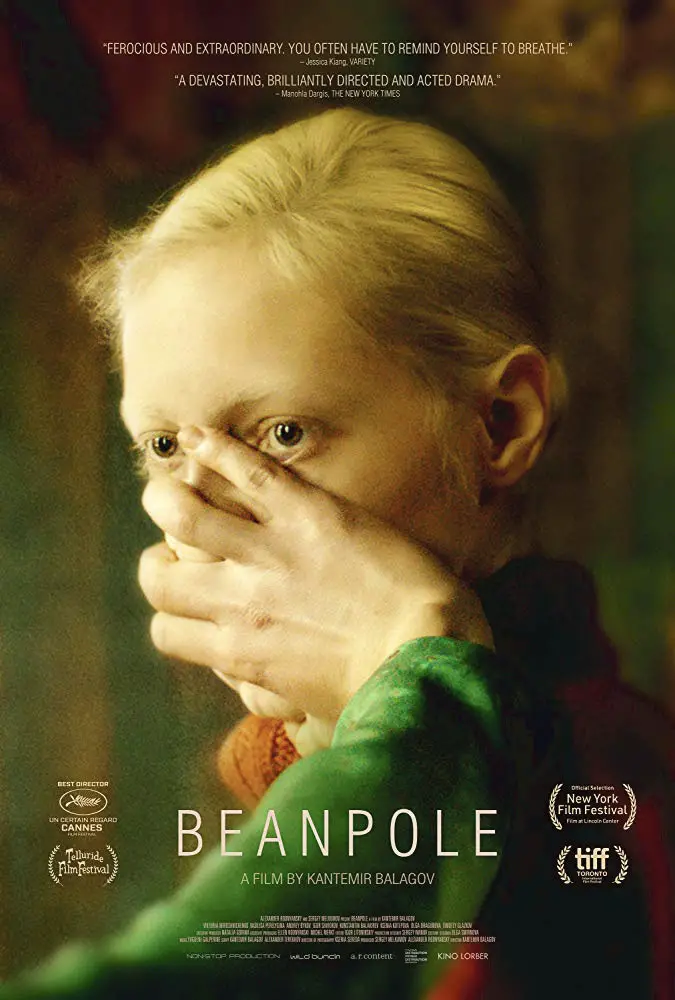
Kantemir Balagov’s Beanpole (or its original Russian title Dyida) does something that a lot of films about WWII typically don’t. It shows us the ravages of war from a female soldier’s perspective. Set in post-war Leningrad, the film takes place in an army hospital where Iya (Viktoria Miroshnichenko), also known as Dyida, works as a nurse. She helps look after sick and injured veterans with guidance from the head doctor, Nikolay Ivanovich (Andrey Bykov). Whenever she’s not at work, she looks after who we believe to be her young son Pashka. She lives in a small room with Pashka, and while things are rough, it being the aftermath of one of the worst wars in history, she gets by. After something terrible happens, Iya’s friend Masha (Vasilisa Perelygina) returns from the front to stay with her.

“Iya has the habit of ‘freezing’ quite often, which is something akin to shellshock…”
Something fascinating about Beanpole is the portrayal of PTSD in WWII, particularly that of women who fought as anti-aircraft bombers. Iya has the habit of “freezing” quite often, which is something akin to shellshock, and Masha suffers from nosebleeds and suffered from much worse while in combat. The bond between Masha and Iya is what makes this film. The two are very different. Iya is quiet and awkward most of the time but also has a big mean streak. Masha is much more outgoing and whimsical, often to her detriment.
Beanpole has some of the most gorgeous production design I’ve seen in a while. Decadent reds and bright greens color an otherwise desolate landscape, giving a hint at some hope in the not-too-distant future. The sets and locations make it easy to believe that you are in post-war/pre-USSR communist Russia, which enhances the depression and hopelessness that most of the characters in this film are facing.

"…After something terrible happens, Iya's friend Masha returns from the front to stay with her. "
